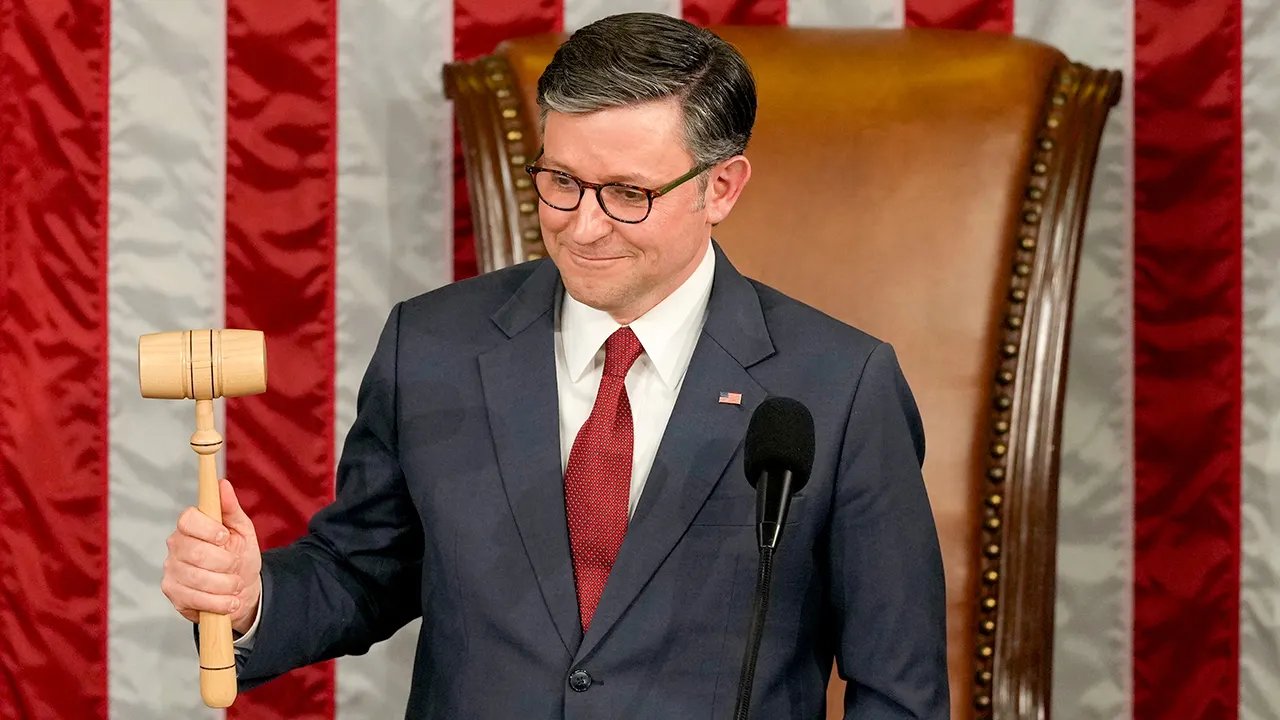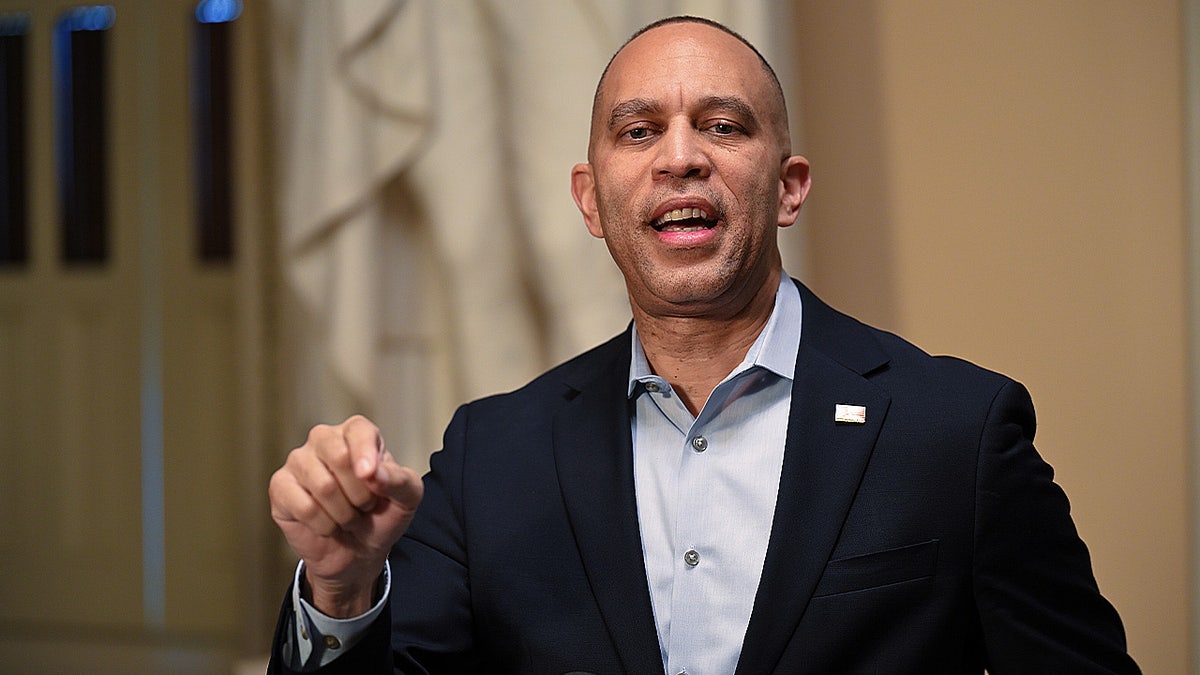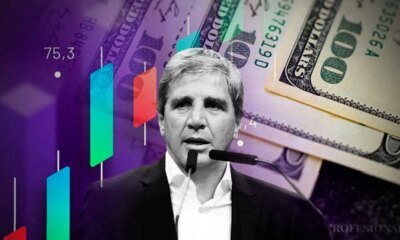INTERNACIONAL
France strips residency from 47-year-old Moroccan man who lit cigarette at Arc de Triomphe war memorial

NEWYou can now listen to Fox News articles!
France has reportedly stripped the residency permit of a man who lit a cigarette at a war memorial in Paris after he was caught on camera.
Interior Minister Bruno Retailleau on Tuesday called the actions of a 47-year-old Moroccan man «indecent and pathetic» following his arrest. Video footage of him lighting a cigarette beneath the much-visited Arc de Triomphe sparked outrage after it was circulated.
«The man who desecrated the Tomb of the Unknown Soldier by lighting a cigarette with the memorial flame was arrested in Paris for violating a burial site, tomb, urn, or monument erected in memory of the dead. He was taken into custody and admitted the facts,» Interior Minister Bruno Retailleau wrote on X.
FRANCE TO DEPORT PALESTINIAN WOMAN OVER ANTISEMITIC POST FEATURING HITLER, HALTS GAZA EVACUATIONS
France’s President Emmanuel Macron (L) delivers a speech on May 8 beside the Tomb of the Unknown Soldier during a ceremony at the Arc de Triomphe for the 80th anniversary of VE Day, or Victory in Europe Day, marking the end of World War II in Europe, in Paris. (THOMAS SAMSON/POOL/AFP via Getty Images)
On Wednesday, France’s Interior Ministry announced that the unidentified man had been stripped of his residency permit, Politico reported.
The Unknown Soldier War Memorial contains a flame and the tomb of a soldier killed in World War I under an arch of the Arc de Triomphe.
LOCALS RANT THEIR NEIGHBORHOOD NOW ‘LIKE DISNEYLAND’ AS POST-OLYMPICS TOURISM SURGES

The Eternal Flame in the Tomb of the Unknown Soldier under the Arc de Triomphe in Paris, France, dedicated to the dead of World War I, circa 1970. (Harvey Meston/Archive Photos/Getty Images)
Footage of the incident shows a man kneeling beside the memorial, which appears to be off limits to visitors. He is seen leaning over the flame emitting from the memorial to light his cigarette before immediately leaving, as the stunned tourists watch.
The man reportedly has legal status in France and was known to police, according to local reports.
Patricia Miralles, the deputy minister for Memory and Veterans’ Affairs, said she was «outraged» by what happened.

Cars drive on the Avenue des Champs-Élysées with the Arc de Triomphe visible in the background, Paris, Thursday, May 7, 2020. (AP Photo/Christophe Ena, File)
CLICK HERE TO GET THE FOX NEWS APP
«Walking on the Tomb of the Unknown Soldier. Lighting his cigarette with the eternal flame. This is not a mere misstep: it is a desecration,» she wrote on X. «France will never tolerate the tarnishing of the memory of those who died for her. Never.»
france,world war one
INTERNACIONAL
House advances bill to end government shutdown with hours until final vote

NEWYou can now listen to Fox News articles!
The record-breaking U.S. government shutdown appears to be on a path to finally ending after 43 days.
Federal funding legislation aimed at opening the government survived a key test vote in the House later Wednesday, teeing it up for final passage in a matter of hours.
That means the bill could hit President Donald Trump’s desk as soon as Wednesday night, likely ending what has been the longest shutdown in U.S. history.
The White House announced that Trump would sign the bill in a statement of administration policy obtained by Fox News Digital.
AIR TRAFFIC CONTROLLERS ISSUE DESPERATE PLEA AS FAMILIES STRUGGLE WITHOUT PAYCHECKS
Speaker Mike Johnson holds the gavel during the first session of the 119th Congress in the House Chamber of the U.S. Capitol in Washington Jan. 3, 2025. (Kent Nishimura/Bloomberg via Getty Images)
«The Administration urges every Member of Congress to support this responsible, good faith product to finally put an end to the longest shutdown in history,» the statement said.
The bill advanced through a procedural hurdle known as a rule vote, which is where lawmakers decide whether to allow legislation to get debated before a final vote on passage.
Rule votes generally fall along partisan lines and are not an indication of whether a bill will be bipartisan.
THE 5 LONGEST GOVERNMENT SHUTDOWNS IN HISTORY: WHAT HAPPENED, HOW THEY ENDED
The vast majority of House Democrats still oppose the bill, but it’s possible that at least several moderates will defy their leaders to support it.
House Minority Leader Hakeem Jeffries, D-N.Y., reiterated to reporters hours before the vote that Democrats were frustrated the bill did not do anything about COVID-19 pandemic-era healthcare subsidies under Obamacare, also known as the Affordable Care Act (ACA). Those enhanced tax credits expire this year.
«House Democrats are here on the Capitol steps to reiterate our strong opposition to this spending bill because it fails to address the Republican healthcare crisis, and it fails to extend the Affordable Care Act tax credit,» Jeffries said.

House Minority Leader Hakeem Jeffries speaks during a press conference on Capitol Hill in Washington Nov. 3, 2025. (Roberto Schmidt/Getty Images)
House Speaker Mike Johnson, R-La., sounded optimistic in comments to reporters Wednesday morning ahead of the vote.
«I wanted to come out and say that we believe the long national nightmare will be over tonight,» Johnson said. «It was completely and utterly foolish and pointless in the end.»
Meanwhile, the shutdown’s effects on the country have grown more severe by the day.
Many of the thousands of air traffic controllers and Transportation Security Administration (TSA) agents who had to work without pay were forced to take second jobs, causing nationwide flight delays and cancellations amid staffing shortages at the country’s busiest airports. Millions of Americans who rely on federal benefits were also left in limbo as funding for critical government programs ran close to drying out.
At the heart of the issue was Democratic leaders’ refusal to back any funding bill that did not also extend the enhanced Obamacare subsidies. Democrats argued it was their best hope of preventing healthcare price hikes for Americans across the U.S.
Republicans agreed to hold conversations on reforming what they saw as a broken healthcare system, but they refused to pair any partisan priority with federal funding.
In the end, a compromise led by the Senate — which saw eight Democrats in the upper chamber join colleagues to pass the bill in a 60 to 40 vote — included a side deal guaranteeing the left a vote on extending the enhanced subsidies sometime in December.

President Donald Trump speaks during a breakfast with Senate and House Republicans in the State Dining Room of the White House in Washington Nov. 5, 2025. (Evan Vucci/AP Newsroom)
Johnson has made no such promise in the House, however.
And the lack of a guarantee on extending those subsidies has angered progressives and Democratic leaders.
CLICK HERE TO DOWNLOAD THE FOX NEWS APP
«What were Republicans willing to give in the end, other more than a handshake deal to take a future vote on extending the healthcare subsidies?» Rep. Shomari Figures, D-Ala., said Wednesday. «We all know that a future vote is the equivalent of asking two wolves and a chicken to vote on what’s for dinner. It is dead on arrival.»
The full House will now vote on the legislation during the 7 p.m. hour.
The bill kicks the current federal funding fight to Jan. 30, by which point House GOP leaders said they were confident they’ll finish work on a longer-term deal for fiscal year 2026.
«There are nine remaining bills, and we’d like to get all of those done in the next few weeks. And, so, [House Appropriations Committee Chairman Tom Cole, R-Okla.] and his appropriators will be working overtime,» House Majority Leader Steve Scalise, R-La., told Fox News Digital.
Asked if he thought they’d get it done by that date, Cole said, «I think we can.»
house of representatives politics,politics,government shutdown
INTERNACIONAL
Ucrania: un escándalo de corrupción y batallas judiciales ponen a prueba al presidente Volodimir Zelenski

«Algo que no les gusta»
Reto para adherir a la UE
INTERNACIONAL
Científicos advierten sobre el impacto ambiental del deterioro acelerado del lago Tonle Sap, en Camboya

Una advertencia científica situó al lago Tonle Sap en el foco internacional, al confirmarse que la extracción de arena en el río Mekong altera el funcionamiento ecológico de la mayor reserva de agua dulce del sudeste asiático.
Un estudio publicado el 10 de noviembre de 2025 y dirigido por Newcastle University revela que la significativa reducción del flujo de agua hacia el lago amenaza la biodiversidad y los medios de vida de millones de personas que dependen de este ecosistema.
El informe, desarrollado en colaboración con Loughborough University, destaca que Tonle Sap es uno de los ecosistemas lacustres más diversos del planeta y la cuarta mayor fuente de pesca a nivel mundial. Reconocido como Reserva de la Biosfera por la UNESCO desde 1997, el lago alberga más de 800 especies, incluidas poblaciones de anfibios, reptiles, mamíferos y aves en peligro de extinción.
Su pulso anual de inundación, imprescindible para la productividad biológica y la regulación hídrica de la región, depende del flujo inverso del Mekong durante los monzones en una zona donde viven cerca de 23 millones de personas.

El estudio de Newcastle University advierte que la extracción de arena, junto a la construcción de presas que retienen sedimentos río arriba, provocó una disminución significativa en el volumen de agua que llega al lago durante la temporada de lluvias.
Entre 1998 y 2018, el descenso del lecho del Mekong, impulsado principalmente por la minería de arena y la alteración de la morfología del canal, redujo el flujo inverso hacia el Tonle Sap entre un 40% y un 50%.
Los investigadores señalan que este deterioro es consecuencia directa de la extracción de arena y la transformación física del cauce, y no únicamente de cambios en el clima o en los patrones de agua.
La presión que sufren tanto las especies acuáticas como las comunidades humanas pone de manifiesto la importancia social y ecológica del lago.

El Dr. Chris Hackney, profesor de Geografía Física en Newcastle University, explicó: “El lago es vital para los ecosistemas y las comunidades de Camboya. En los últimos años, las comunidades locales notaron que el lago ya no se llena como antes y los ecosistemas que dependen de largas temporadas de inundación están bajo una presión creciente. Si se quiere preservar el lago, es necesario mantener o aumentar los niveles del lecho del río Mekong”.
El análisis de los expertos, como el Dr. Quan Quan Le de Loughborough University, también subraya el papel del crecimiento urbano en la demanda global de arena para construcción, lo que multiplica la extracción en los ríos de la región.
La investigación confirma que esta extracción debilitó el pulso de inundación del lago, causando daños ambientales duraderos y resaltando la urgencia de una gestión sostenible de sedimentos.
Las proyecciones del estudio atribuido a Newcastle University resultan especialmente graves. Si la tendencia actual continúa, para 2038 el flujo inverso podría disminuir hasta un 69% respecto a los niveles de 1998. Esta reducción no solo afectaría la biodiversidad, sino que tendría efectos directos sobre la agricultura y la seguridad alimentaria en el delta del Mekong.

El estudio detalla que el reducido flujo durante la estación seca podría bajar en un 59%, lo que intensificaría la intrusión de agua salada y disminuiría los rendimientos agrícolas. Asimismo, el aumento del flujo hacia el delta durante el monzón, calculado en unos 26 km³, elevaría el riesgo de inundaciones en una de las regiones más densamente pobladas del sudeste asiático.
Frente a este escenario, los autores del estudio insisten en la necesidad urgente de implementar una gestión sostenible de los sedimentos y regular la extracción de arena para evitar daños irreversibles en el sistema Tonle Sap-Mekong.
Los expertos advierten que la salvaguarda del lago y la seguridad de las comunidades dependen de acciones inmediatas y coordinadas que antepongan la integridad ecológica del río y su cuenca.
Newcastle University alerta que la extracción excesiva de arena representa una amenaza existencial para la sostenibilidad del sistema Tonle Sap-Mekong. Los autores del estudio manifiestan su preocupación respecto al futuro de este ecosistema fundamental.
extracción de arena,lago Tonle Sap,crisis ambiental Camboya,inundaciones Tonle Sap,impacto ecológico sudeste asiático,biodiversidad Mekong

 ECONOMIA3 días ago
ECONOMIA3 días agoPromociones en YPF, Shell, Axion y Puma: cómo aprovechar los descuentos en combustible

 ECONOMIA3 días ago
ECONOMIA3 días agoViene un nuevo esquema para el dólar: qué anticipa el mercado tras sorpresiva «confesión» de Caputo

 CHIMENTOS1 día ago
CHIMENTOS1 día agoWada Nara se despidió de sus hijas con un desgarrador mensaje al entregárselas a Mauro Icardi: «Que la pasen hermoso»


























